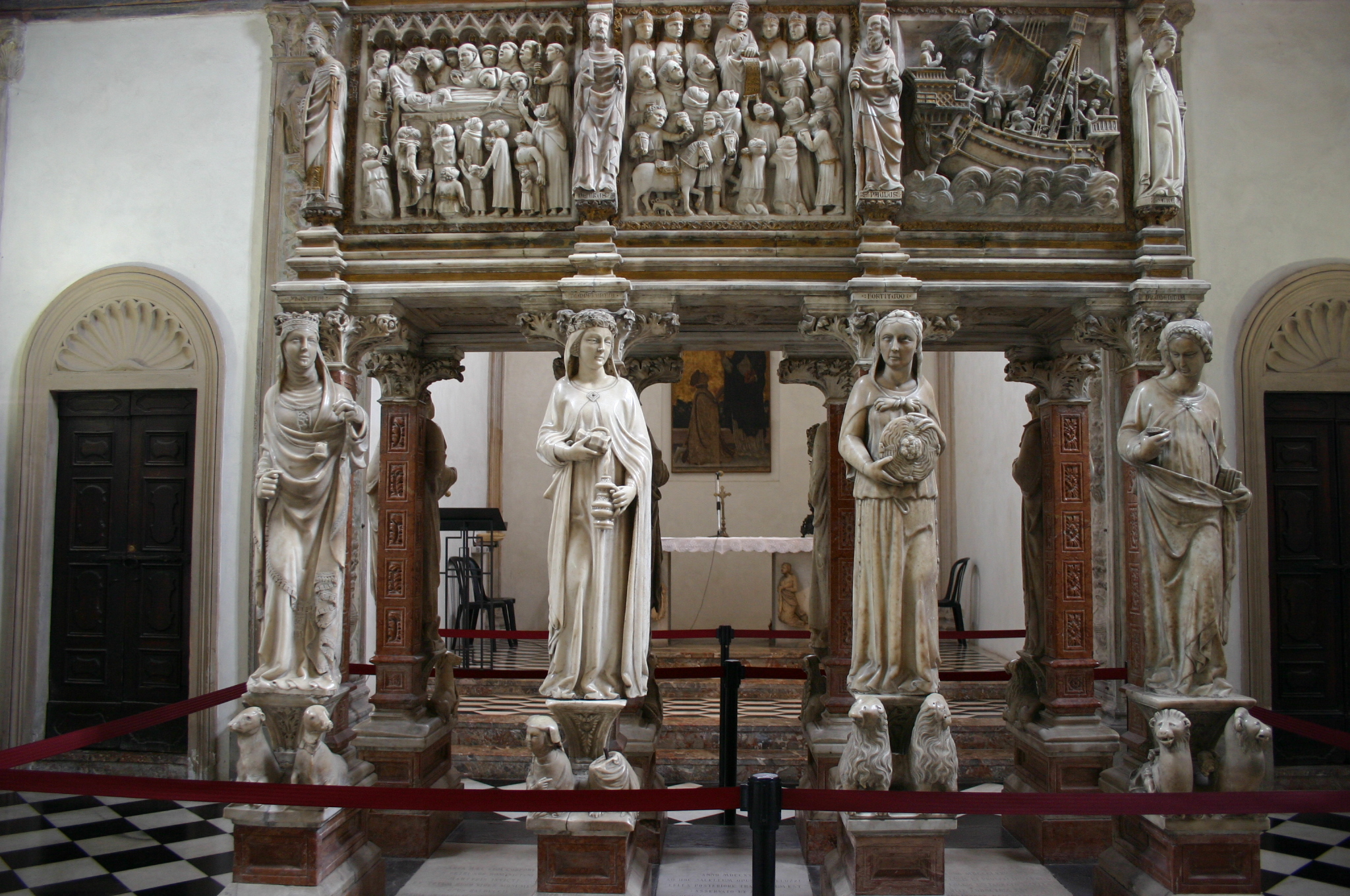 Having examined the matter of the internal virtues, let us turn attention to the remaining four, cardinal virtues. The term 'cardinal' comes from cardo, the hinge, for just as a door swings upon a hinge it is by the four external virtues that a moral life swings. The four are Justice, Prudence, Temperance and Fortitude.
Having examined the matter of the internal virtues, let us turn attention to the remaining four, cardinal virtues. The term 'cardinal' comes from cardo, the hinge, for just as a door swings upon a hinge it is by the four external virtues that a moral life swings. The four are Justice, Prudence, Temperance and Fortitude.Note that these virtues are not unique to the Christian experience. Plato outlines these very things in the Republic as to the various classes of a city and the Wisdom of Solomon says that She [Wisdom] teaches the four virtues. Still, they are most solidly and emphatically embraced by the early and medieval church.
Indeed, I will ask Augustine to start things with his discussion of the meanings of the virtues.
So we may express the definition thus:Putting this into a 21st century light, Justice is to treat everyone as they should be treated, neighbour as neighbour, person as person, God as God.
that temperance is love keeping itself entire and incorrupt for God;
fortitude is love bearing everything readily for the sake of God;
justice is love serving God only, and therefore ruling well all else, as subject to man;
prudence is love making a right distinction between what helps it towards God and what might hinder it. (Against the Manichaeians, I,15)
Prudence is the ability to discern good from evil and the choice to embrace the former and eschew the latter.
Temperance is the measure of self-control and moderation. Put differently, it is the ability to ensure that your head rules your heart. This virtue is sometimes known as restraint.
Fortitude is the ability to endure with the same aplomb in tasks both difficult and easy, under adversity and prosperity, doing all with humility and free from despair or pride. This virtue is sometimes known as courage.
These virtues are as engines driven by the water alluded to earlier, doing the Good Work which leads to the perfection of Christ on earth. By the pursuit of them, we pursue the manifest goodness which is the Divine. Recognize that it is their pursuit, not perfection, which is the proper goal, as we all make mistakes.
Finally, I would point out that all seven of these are bound up together, so that one who is virtuous should "be wary and prudent, just in the doing of Justice, continent and temperate, enduring and courageous; and withal he must have great faith in God, hope in his Glory, that he may attain the guerdon of the good that he has done, and finally he must have charity and the love of his neighbour."(The Unconquered Knight, p5)
No comments:
Post a Comment